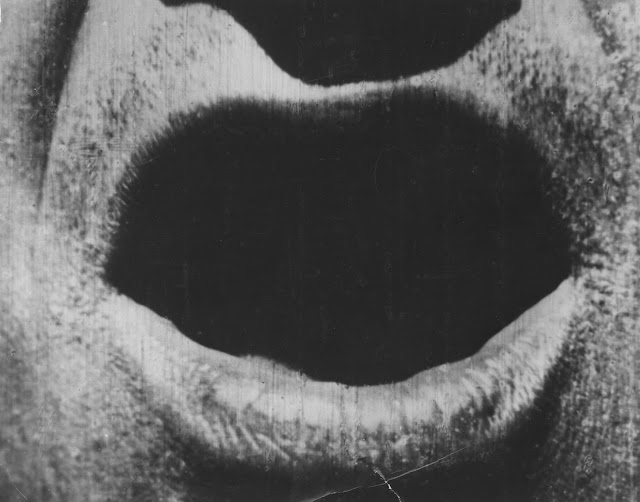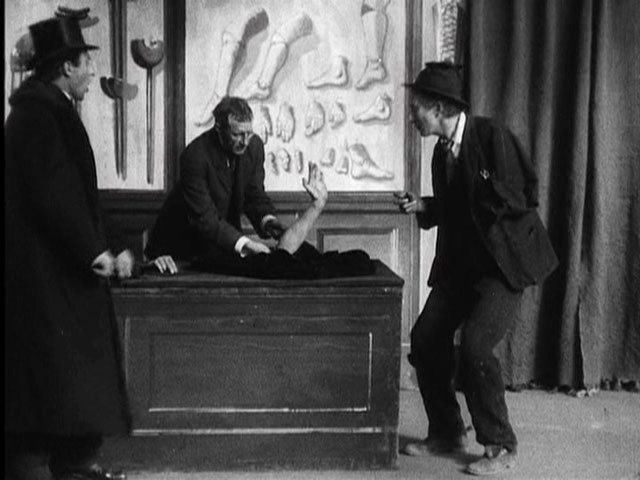September 15, 1902 [The Big Swallow]
The Ouroboros, once revolving all on its lonesome at the start of Plato's universe, self-contained and perfect—needing neither eyes nor ears, hands nor feet—or turning and turning around Egyptian gods three-plus millennia ago, at once worshipping and worshipped—that is, the snake that keeps itself alive by eating its own tail—or better (no, worse) yet, as Plato notes, eating its own waste—this thing—now just a fellow in growing consternation as he fiddles with his pince-nez—seems simply one of us in The Big Swallow, scowling as he approaches the staring camera, brandishing his cane in warning, then opening wide and taking in both camera and camera operator—and us as well—and chewing us up and swallowing us down and opening his mouth at the last moment in a broad grin.
One more word from Plato, who reminds us that "the universe was created without legs and without feet." I may be a dunce, but I'm not sure of the syntax of that phrase. Does he mean that the universe, when created, had no legs or feet, or that the universe was created without the use of legs and feet? I'm content not to be certain: either reading fits The Big Swallow. After all, the cinema seems to prefer us without legs or feet, feeds itself on us—well, at least on our small coins; and as for the other, what a fitting mirror we're given in the image of a universe planted on its bottom, no need for legs or feet, content to sit and make everything out of nothing—and to eat it as well, the beginning and the end captured not in perfect Trinity or a wheel of Karmic balance but in the mastication of an impulsive snack.
It matters not to me; I can swallow one tale or the other and still keep my seat.
One more word from Plato, who reminds us that "the universe was created without legs and without feet." I may be a dunce, but I'm not sure of the syntax of that phrase. Does he mean that the universe, when created, had no legs or feet, or that the universe was created without the use of legs and feet? I'm content not to be certain: either reading fits The Big Swallow. After all, the cinema seems to prefer us without legs or feet, feeds itself on us—well, at least on our small coins; and as for the other, what a fitting mirror we're given in the image of a universe planted on its bottom, no need for legs or feet, content to sit and make everything out of nothing—and to eat it as well, the beginning and the end captured not in perfect Trinity or a wheel of Karmic balance but in the mastication of an impulsive snack.
It matters not to me; I can swallow one tale or the other and still keep my seat.


Comments
Post a Comment